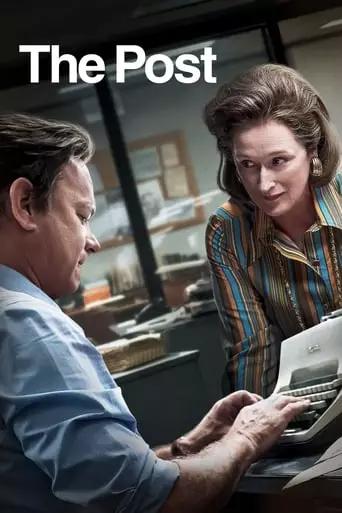
The Post (2017) Watch Online Free
A cover-up that spanned four U.S. Presidents pushed the country’s first female newspaper publisher and a hard-driving editor to join an unprecedented battle between journalist and government. Inspired by true events.
The Post is a 2017 political thriller directed by Steven Spielberg, featuring Meryl Streep as Katharine Graham, the first female publisher of a major American newspaper, and Tom Hanks as Ben Bradlee, the editor of The Washington Post. The film dramatizes the true story of the newspaper’s efforts to publish the Pentagon Papers, a classified government report detailing the United States political and military involvement in Vietnam from 1945 to 1967.
In the early 1970s, The Washington Post is struggling to establish itself as a reputable newspaper, competing with The New York Times and The Washington Star. The Pentagon Papers, leaked by Daniel Ellsberg, reveal that successive U.S. administrations misled the public about the Vietnam War. When The New York Times begins publishing excerpts, the Nixon administration seeks to suppress the information, citing national security concerns. Facing legal threats and the potential for financial ruin, Graham and Bradlee decide to publish the remaining documents, risking their careers and the newspaper’s future.
The film explores themes of press freedom, the role of women in leadership, and the ethical responsibilities of journalism. It highlights the tension between government secrecy and the public’s right to know, emphasizing the importance of a free press in holding power accountable.
Upon its release, The Post received widespread critical acclaim for its timely subject matter, direction, and performances. On Rotten Tomatoes, the film holds an approval rating of 88% based on 409 reviews, with an average rating of 7.90/10. The website’s critical consensus reads, The Post’s period setting belies its bitingly timely themes, brought compellingly to life by director Steven Spielberg and an outstanding ensemble cast.
Critics praised the film for its relevance, especially in the context of contemporary discussions about press freedom and governmental transparency. Meryl Streep’s portrayal of Katharine Graham and Tom Hanks’ depiction of Ben Bradlee were particularly lauded, with many highlighting their performances as central to the film’s success.
The film also sparked renewed conversations about the role of the press in holding power accountable, resonating with audiences and critics alike. Its release coincided with a period of heightened scrutiny of the media, making its themes particularly pertinent.
After watching The Post, viewers are likely to feel a sense of admiration for the courage and determination of those who fought to uphold the principles of a free press. The film’s portrayal of Katharine Graham’s leadership journey may inspire feelings of empowerment and respect for women in positions of power. The ethical dilemmas presented will prompt reflection on the responsibilities of the media and the importance of transparency in governance. Overall, the film offers a compelling and thought-provoking experience that underscores the vital role of journalism in a democratic society.
